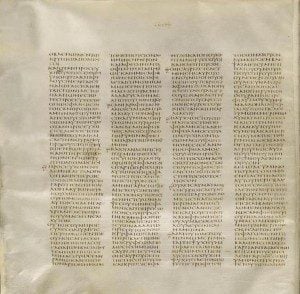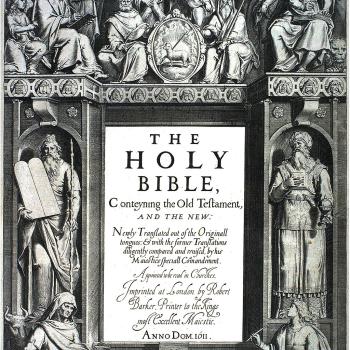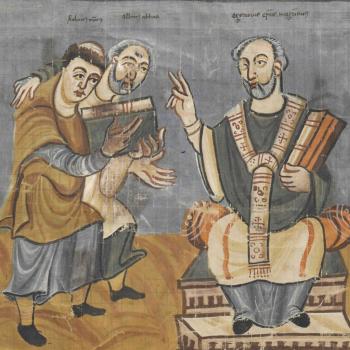I have invented a new discipline, the Theology of Punctuation.
I am presently writing a book about the couple of centuries preceding Jesus’s time, and over the past year or two I have written quite a few blogs about issues relating to that topic. One of the persistent problems I have relates to capitals and upper case letters. That may sound trivial, but it actually gets to some quite critical issues of translation and interpretation.
When we use capitals, we are making a clear statement about the words that we so dignify. We are stressing that those words represent something special, perhaps THE example of its kind, rather than any generic example. In religion, we mean something totally different if we refer to Virgin rather than virgin, or if we refer to the Father and the Son, rather than the father and the son. To write of God is usually to refer to the one absolute and transcendent Creator (see, I capitalized that – did you notice?) while a god is a more commonplace thing. Often, our editorial decisions carry quite unintentional theological weight.
But here is the problem. Virtually all such decisions are arbitrary, and rely on editorial tradition. When we translate the New Testament, for instance, we have no capitals or upper case to guide us. Actually, let me be more precise here. Early Greek New Testament manuscripts are entirely in what we would call capitals or upper case.
Hence, there is no distinction between upper and lower case, and thus (in our sense) no word is dignified or distinguished by a capital.
When we read Peter’s confession of faith in Mark 8.29, he declares that “Su ei ho christos.” That can just as legitimately be translated in any of the following ways:
You are the Christ
You are the christ
You are the Messiah
You are the messiah
You are the Anointed
You are the anointed
You are the Anointed One
You are the anointed one.
You see what a difference capitals make? Not to mention the decision to translate a word in one particular form, rather than retaining its literal and original meaning.
Incidentally, my spellcheck tries to enforce theological correctness by insisting I capitalize Christ.
You can think of so many other examples, but one of the weightiest (and best known) is the phrase translated as son of man (ho huios tou anthropou). In some instances in the Bible, that phrase indicates a generic human status. In others, it does imply some kind of messianic being. In translation, we indicate the difference as best we understand it by capitals (Son of Man) and hope fervently that we are interpreting correctly. But as I say, the languages of the original texts offer not the slightest clue about capitalization.
In no particular order, I offer some other examples where our capitalization policy can make a vast difference in reading and interpreting a passage:
End of the Age, and end of the age.
Wisdom, and wisdom.
Devil, and devil.
Satan, and satan.
Lamb, and lamb.
Lord, and lord.
Scripture, and scripture.
Father and Son, and father and son.
World, and world.
The Holy One of God, and the holy one of God.
Son of God, and son of God.
But let me repeat that basic and oft-forgotten rule. The capitals in the scriptures we read today are put there by translators, and might or might not reflect the meaning or intention of the original writers. However objectively and intelligently they are doing their job, the theology we read into those capitals is the work of those translators.

















